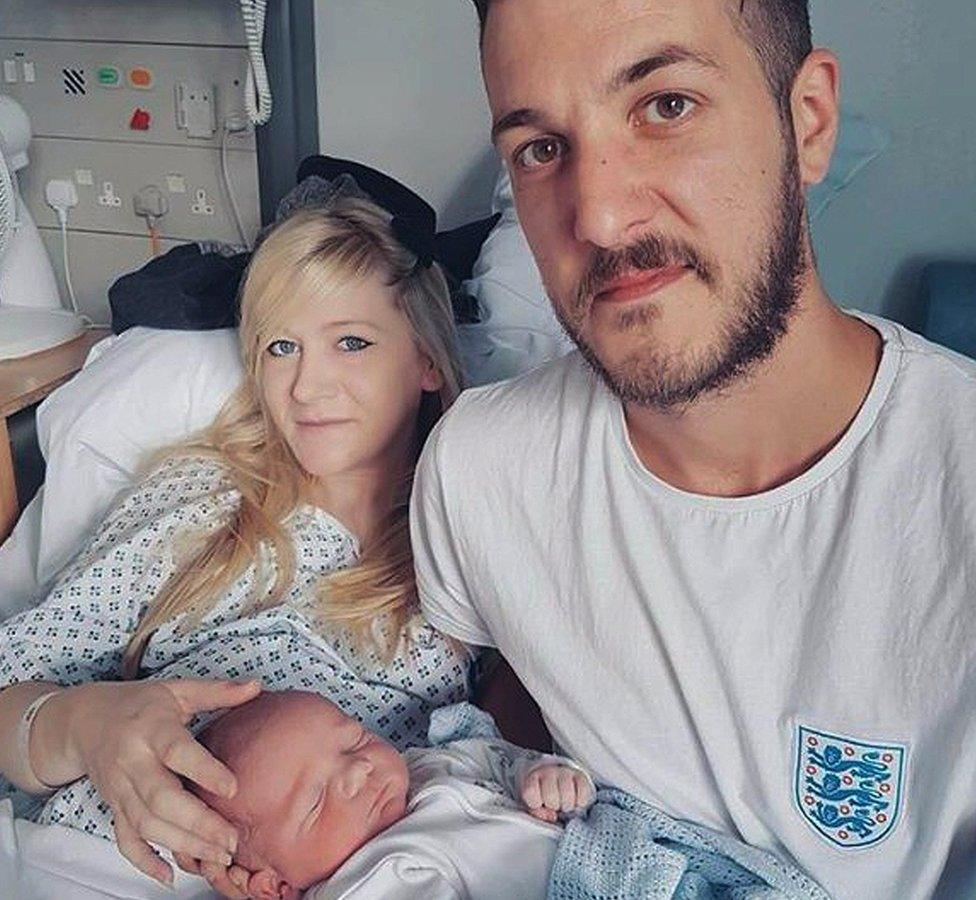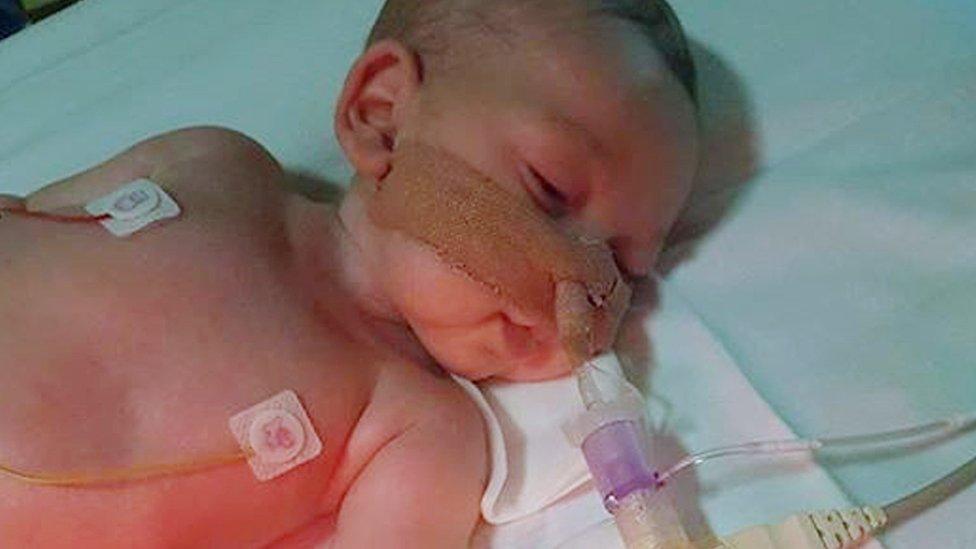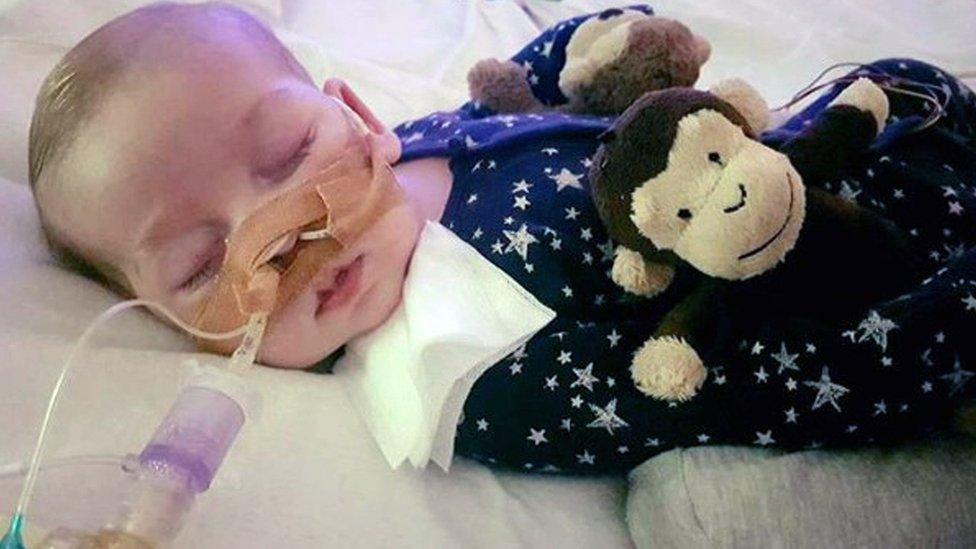Charlie Gard doctors say treatment 'should be halted'
- Published

Charlie's rare disease has left him unable to cry and made him deaf
Doctors treating a sick baby have said his life support should be stopped as his mother urged a High Court judge to give him "one chance of life".
Specialists say eight-month-old Charlie Gard is largely unable to move and has significant irreversible brain damage.
His parents want to take him abroad for treatment but doctors say he should be moved to having palliative care.
His mother Connie Yates said without the treatment "Charlie's only alternative is death".
A decision over whether to turn off Charlie's life support machines is being considered by the Family Division of the High Court.
Judge Mr Justice Francis said he aimed to announce his decision on Tuesday.
He has been told Charlie, who was born on 4 August 2016, has a disorder called mitochondrial depletion syndrome which causes progressive muscle weakness.

Connie Yates and Chris Gard with their son Charlie, who was born healthy in August last year
A lawyer representing Great Ormond Street Hospital said a number of "world-renowned" experts agreed life support treatment should be halted.
Debra Powell QC said Charlie's father Chris Gard and Ms Yates had given their son "complete and unwavering" love and support.
However, she said Charlie should not get long-term life support treatment because his quality of life was so poor.
A guardian appointed to independently represent the baby boy's interests said he should not travel to the US for treatment.
Barrister Victoria Butler-Cole, instructed by Charlie's guardian, said continuing life-support treatment would not benefit Charlie but "prolong the process of dying".
She said: "This is not pioneering or life-sustaining treatment, but a purely experimental process with no real prospect of improving Charlie's condition or quality of life."

Analysis by Jane Dreaper, BBC News health correspondent
Baby Charlie suffers from an incredibly rare and devastating disease affecting the genetic building blocks which give energy to cells.
The Family Division of the High Court has heard how this mutation in the RRM2B gene generally proves fatal in the first year of life, although children can survive for longer on ventilators.
The American doctor who proposes treating Charlie for up to six months has stressed that an experimental drug called nucleoside therapy is not a cure.
Such a treatment plan would also require detailed conversations with intensive care specialists about ensuring the baby was medically stable for the long trip to the United States.
Doctors at Great Ormond Street Hospital in London say Charlie could theoretically have been given the treatment here - but they do not believe this is appropriate because he is so ill.


Specialists at Great Ormond Street say there is no accepted cure for Charlie's rare disease
Doctors at Great Ormond Street Hospital said the baby received 24-hour care and should be allowed to die with dignity.
But Ms Yates said: "All I ask now is for you to give him that chance for the treatment proposed.
"Charlie's best interests have always been at the forefront of our mind."
A crowdfunding campaign for the trip is about £50,000 short of its £1.3m target.
- Published5 April 2017

- Published3 April 2017

- Published2 April 2017

- Published7 March 2017

- Published3 March 2017
